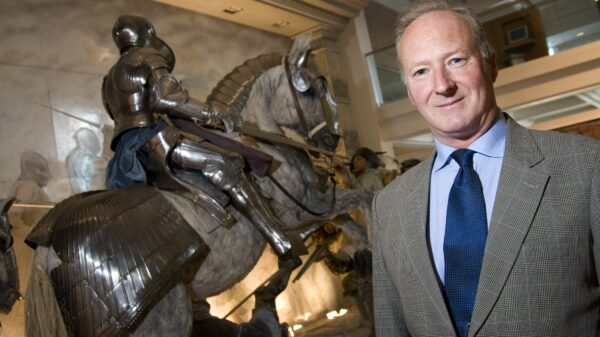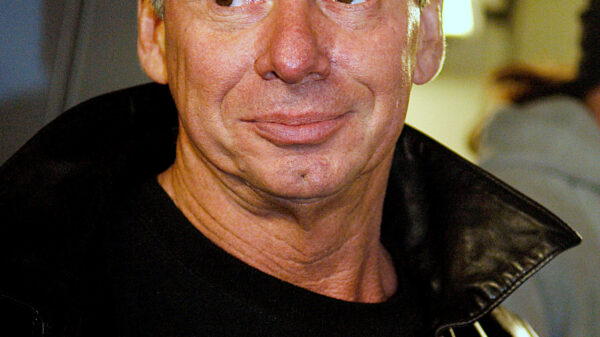Culture Editor Ally Azyan on Netflix’s “Don’t Look Up” and its implications on the world we live in.
Having enjoyed “The Big Short”, I had high expectations for Adam McKay’s latest film, “Don’t Look Up” released on Netflix in December 2021, ending the year on both a humorist and depressing note. The film follows the (fruitless) efforts of two astronomers, Kate Dibiasky (Jennifer Lawrence) and Dr. Randall Mindy (Leonardo Dicaprio), from Michigan State University, to warn the world of a comet (later named Comet Dibiasky) that would end the world.
Comet Dibiasky symbolises the ongoing climate crisis that has caused polarisation and ignorance, themes satirised by McKay, across the globe. This is a refreshing shift from other science-fiction movies, such as “2012” and “Armageddon”, which employ dark and apocalyptic tones with optimistic endings. Perhaps it’s because of the unrealistic and outlandish nature of these films that we don’t take global issues seriously, because at the end of the day, we’ll somehow get onto a magical spaceship and fly away to another planet to begin a new life. Conversely, McKay’s comedic take on this does not make room for any optimism as humanity is wiped out, and even survivors who managed to relocate themselves to another liveable planet are killed by its unknown creatures.
Aside from being a satire on the climate crisis ignorance, there are three main aspects the movie focuses on: science, politics, and financial greed.
Science
The main theme that the film addresses is climate change, which has already started its course in the last few decades, but many are only realising it now. From wildfires that have ravaged the US and Australia, to floods that have seized the homes of those in Southeast Asia and the uncharacteristically warmer New Year’s Day in Europe – this is our reality, and it’s only going to get worse. When Kate and Dr. Mindy first warn the public of the impending doom that Comet Dibiasky will bring on the talk show “The Daily Rip”, viewers are more interested in the toxic love affair between Riley Bina (Ariana Grande) and DJ Chello (Scott Mescudi). Any attention that is paid to the astronomers are mainly on Dr. Mindy’s good looks and Kate’s ‘crazy’ attitude. That has, unfortunately, always been the case. For example, more have been interested in Tom Holland and Zendaya’s new relationship than in the recent super typhoon that tore through the Philippines, which also affected Malaysia, causing millions to be displaced and infrastructures to be destroyed. In an interview with “Entertainment Weekly,” McKay stated that “we live in a society that tends to place it [climate change] as the fourth or fifth news story, or in some cases even deny that it’s happening”.
Politics
This leads us to one of the biggest contributors to the climate crisis: its politicisation. In the film, President Orlean (Meryl Streep) is initially dismissive of the comet and laughs it off as being another boy-who-cried-wolf situation: “Do you know how many ‘the world is ending’ meetings we’ve had over the years?” Announcing this incoming disaster would also have a negative impact on her performance in the midterms. However, when she is faced with a sex scandal, she uses the comet as a political weapon to win the midterms, where she announces that there have been plans to save the planet from its end. Another layer to this is a clear political division over the comet itself, where the working classes are seen supporting Orlean’s ‘Don’t Look Up’ campaign – which follows the notion that the comet will improve people’s lives through BASH’s project – while others who are part of the ‘Just Look Up’ campaign, denounced as Marxists on social media, want to destroy Comet Dibiasky as a whole.
Financial Greed
As mentioned earlier, BASH’s project is led by the third richest man on Earth, Peter Isherwell (Mark Rylance), the CEO of BASH. The tech company claims that there are minerals and rare elements in the comet that could improve the economy by providing jobs to many, as it would boost production and innovation. These materials would be extracted by fragmenting the comet and its pieces would crash into different parts of the ocean, which would then be retrieved by the marine forces. Though it sounds promising, this method is not peer-reviewed and could prove to fail, which causes Dr. Mindy, who strays from his initial mission of having the comet fully destroyed, to reconsider his position and morals. This shows the temptation of financial greed that strays the ‘good’ person from their mission of the greater good, leaving the majority they represent helpless, which reinforces the proverb that you either die a hero or live long enough to see yourself become a villain. As foreshadowed, the extraction fails, and Comet Dibiasky does end up crashing on Earth, killing everyone except the extreme rich who are able to escape with their sleeper spaceship.
There shouldn’t be any subjective layers to something as objective and factual like science. Indeed, its contents can be debated, as we are always learning something new about our planet, but if something as catastrophic as climate change and its negative lasting impact are being ignored for political and financial interest, it will be almost impossible to overcome. We can also coincidentally see this with Covid-19, as many are still divided over something as simple as the mask mandate due to its ‘restriction on liberty’, even when it has already been proven to be effective in preventing the spread of disease.
Overall, “Don’t Look Up” addresses these layers with much depth, within a frame of 138 minutes, through the various personalities presented, while allowing audiences to draw clear parallels with real-life examples. The vehicle of comedy presents a new side to the situation, where it allows us to gain some self-awareness in the way we act when faced with a crisis that does not discriminate. Could “Don’t Look Up” be the wake-up call for people to take climate change seriously, or will this be shelved alongside other apocalyptic films?















